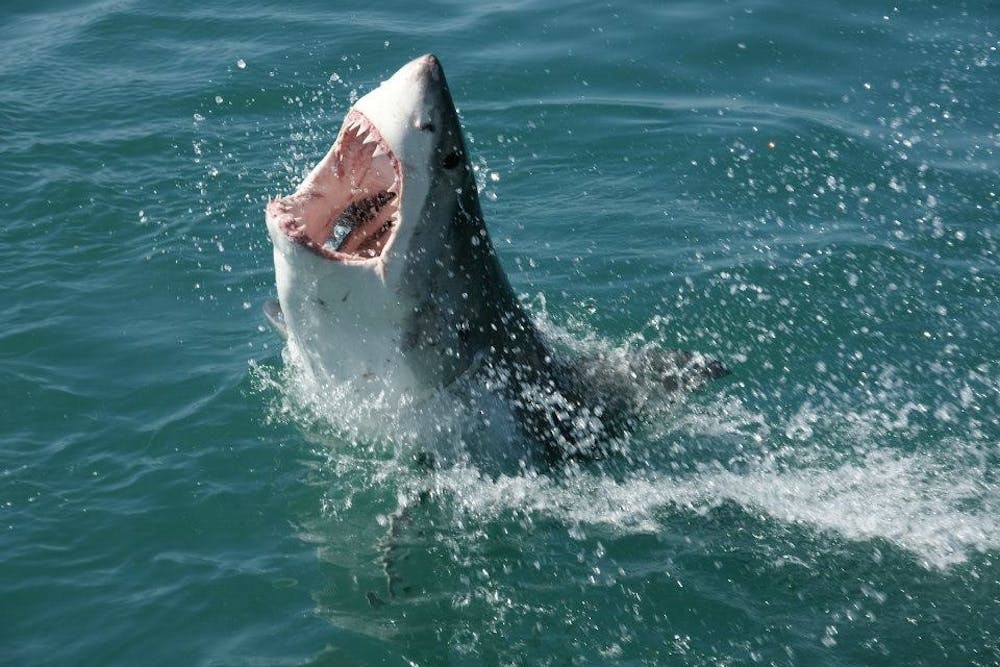I’m not sure how, exactly, sharks became my favorite animal. I was 10 years old when they became my new obsession. Whatever the inspiration, I was hooked. I set out to learn as much as I could about them. And when I was 11, I started a PowerPoint in order to retain the facts I was gathering from books and TV specials.
I still update the Powerpoint to this day. So it bothers me when people try to paint sharks as man-hungry murdering machines. The facts simply aren’t there.
According to National Geographic, “You have a one in 63 chance of dying from the flu and a one in 3,700,000 chance of being killed by a shark during your lifetime.” And yet, do we fear the flu? No. But we’re convinced that we may very well be fatally attacked by a shark whenever stepping foot in the ocean. Yet the odds of that are 0.000017 percent lower.
From a psychological standpoint, it’s actually somewhat understandable.
We don’t fear something we’ve survived countless times, like the flu. We fear the unknown. However, we find a way to move past that fear. After all, millions of people still go swimming in the ocean every year, so we aren’t letting the paranoia take over. But our paranoia isn’t simply hurting sharks. It’s actually killing them.
According to the Smithsonian Institution, humans kill “an estimated 100 million sharks” every year. In some countries, sharks are considered a delicacy. Their fins, in particular, are valued as the main component in the popular Chinese dish shark fin soup.
Aside from the issue of overfishing, the manner in which the fins are attained is particularly cruel.
Since the fins are the most prized part of the animal, fishermen often slice off sharks’ fins and then simply throw the mutilated sharks back in the ocean. Unable to swim but not yet dead, the sharks are left to suffer unimaginable pain before either suffocating or bleeding out.
As a result of the shark fin trade, many shark species are endangered, with their endangered status threatening not only their well being but also that of the entire ecosystem.
As top predators, imbalance in the shark population causes the food chain to become unstable, according to the Smithsonian. Biodiversity suffers.
Obviously it’s not paranoia but greed that’s driving the shark fin trade. Still, paranoia is preventing more resistance from forming against the business of shark fin fishing.
The practice is banned in the United States and many other countries. But clearly it will not end anytime soon if more measures aren’t taken to stop it.
It’s much easier to stand against the poaching of cuddly, more familiar animals than it is to protest the brutal slaughter of sharks. It’s easier to defend killing sharks. It’s happened before.
Jaws was first brought to life by Peter Benchley as a novel in 1974 before being turned into the iconic blockbuster the following year by Steven Spielberg with a screenplay co-written by Benchley.
Just as the citizens of Amity Island launch a shark hunt before ultimately killing the culprit behind the attacks, so, too, did America go on an anti-shark crusade. Benchley and Spielberg wanted to deliver horror, and they succeeded. Only later did Benchley at least consider the consequences.
In his final years, he became an advocate for shark conservation and began speaking out against sensationalizing shark attacks, the very practice he had built a career on. According to his obituary in the Los Angeles Times, Benchley admitted the harm that Jaws had done.
“Knowing what I know now, I could never write that book today. Sharks don’t target human beings, and they certainly don’t hold grudges,” he said according to the Los Angeles Times.
So why, over 40 years later, are we still holding onto fear that was built on a lie? Yes, sharks kill. But they don’t hunt humans.
Think about it this way. If you impulsively decided to jump into the tiger exhibit at the zoo, you would expect the tiger to attack, right? You’re in their environment. You couldn’t really blame the tiger.
Every time we set foot in the ocean, we are entering shark territory. If they wanted to track us down and eliminate us, they could quite easily. But the reality is, we’re the ones tracking the sharks down and hunting them.
So who’s really the bad guy?





